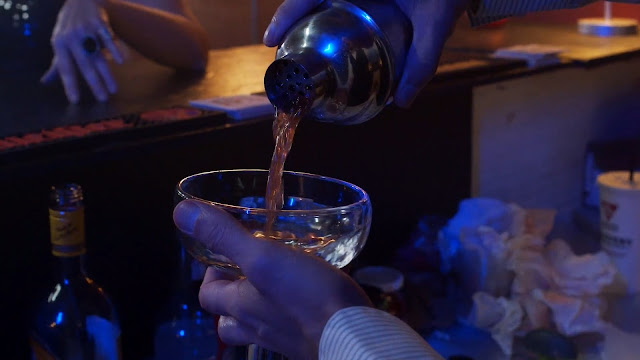Bartending, like many professions, has its share of insider knowledge and "dirty little secrets." These are often insights and practices that might not be readily apparent to the average customer. Here are some common secrets or tips that bartenders might know:
Heavy Pouring: Some bartenders might pour a bit more alcohol into a drink than the standard recipe calls for, especially if they want to keep a good tip or please regular customers. This practice can vary widely and is not necessarily unethical, but it's essential for bartenders to pour responsibly.
Well Drinks vs. Top-Shelf: When customers order a specific brand of alcohol, they may not always receive that brand. Bartenders might use the "well" version (the house brand) and charge for the premium brand, pocketing the price difference.
Reusing Garnishes: In busy bars, garnishes like lemons and limes might be reused from one drink to the next. The bartender may give it a quick rinse, but hygiene standards can vary.
High-Margin Drinks: Some cocktails have a significantly higher profit margin than others. Bartenders might encourage or promote these drinks more, which is why you might see them on specials or featured prominently.
Dilution: When a drink is shaken or stirred with ice, it becomes diluted as the ice melts. Bartenders may adjust the dilution level based on personal preferences or to speed up service.
Flair Bartending: Flair bartending involves tricks and showmanship, but some bartenders might use these skills to make drinks seem more impressive than they are, potentially leading to higher tips.
Buybacks: Some bartenders offer "buybacks" – free drinks to regular customers. This practice can encourage repeat business and boost tips.
Overcharging: Occasionally, bartenders might intentionally overcharge or add an extra drink to a tab to pad their tip. This is unethical and can lead to legal consequences if discovered.
Short Pouring: The opposite of heavy pouring, bartenders might under-pour to save on liquor costs, especially in bars where management is strict about inventory control.
Shift Drinks: After their shift, bartenders might have a "shift drink" or two on the house. This is a common practice in the industry.
"Industry Discount": Bartenders often give discounts or special treatment to fellow service industry workers who come in on their night off.
It's important to note that while some of these practices might be considered "dirty secrets," many bartenders take pride in their craft and prioritize professionalism and customer service. The extent to which these practices occur can vary widely from one establishment to another and from one bartender to another. Ethical bartenders prioritize responsible service and customer satisfaction above all else. If you ever encounter unethical behaviour at a bar, it's essential to report it to the management or authorities if necessary.


No comments:
Post a Comment